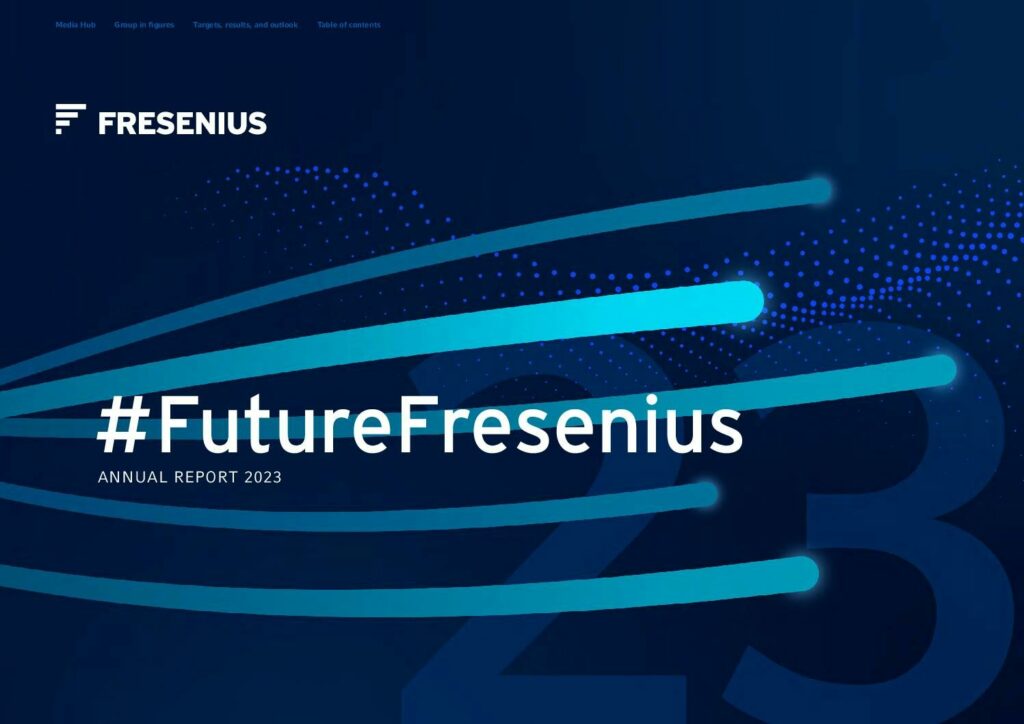Global working conditions are defined on the basis of guidelines and regulations at Group level, as already explained. Within the business segments, there are internal guidelines for employees covered by collective agreements and non-tariff employees with regard to working hours, jobs, and benefits. Occupational health and safety regulations apply to all persons in our healthcare facilities and operating sites, regardless of their employment relationship, but also to visitors and patients.
The remuneration is based on requirements set by law or, where applicable, specified by the salary structures negotiated with the respective trade unions. Remuneration is usually based on local market standards and should be fair and appropriate. The Group compensates employees on both permanent and temporary employment contracts according to specific rates that meet or exceed local industry conditions, but at least match local minimum wages. Any discrimination on the basis of gender or other criteria, as described in the Diversity and equal opportunities chapter, must be prevented. As an international healthcare Group, we create various incentives for employees, depending on the country and location. These include, for example, the chance to participate in the company’s success via variable and performance-based compensation models. Benefits for full-time employees of the organization are also provided proportionally to part-time employees. In Germany, benefits can be based on joint agreements between employer and works councils. We describe our variable compensation models in detail on pages 348 ff. in the Notes.
Collective agreements
In some European countries, Fresenius is subject to industry-related collective agreements, e. g., in France, which are binding by law due to the industry to which we are affiliated. Where this is not the case, country-specific collective bargaining agreements can be negotiated with local trade unions or comparable social partners. Employees are informed by trade unions (collective bargaining partners) or employee representatives about tariff agreements, tariff negotiations, and their results. This is regulated differently in the individual countries.
General conditions for non-tariff employees are based on the provisions of the applicable collective agreement or local regulations. Further, depending on the function, additional agreements can be part of the employment contract. For executives, regulations are agreed in the employment contract. Salary transparency in the different countries is granted according to legal requirements and tariff contracts.
The Fresenius Helios hospitals in Germany are subject to a Helios Group collective agreement, the collective agreement for public service (TVöD), or company-specific collective agreements. At Helios Germany, there are regular compensation negotiations within the framework of collective agreements that generally take place every two years. The locations in Germany are subject to the regulations of the applicable working time legislation, which in some cases provides for opening clauses for supplementary tariff regulations. The Works Constitution Act, which grants the works councils co-determination rights and control, also has a regulatory effect. The framework with regard to working hours for the individual companies is regularly agreed by the respective company parties on-site. In Germany, the majority of workers are represented by the trade union ver.di.
Employees in our Spanish clinics are covered by legally binding tariff agreements. Further, the trade unions Comisiones Obreras, Unión General de Trabajadoras y Trabajadores (UGT) and the Sindicato de Enfermería (SATSE) care workers’ union are predominantly represented in the works councils.
In 2023, 74% of our global employees were covered by a collective bargaining agreement. The reduction compared to the previous year is due to the extension to a global scope since 2023.
Collective agreements: Application rate
Download(XLS, 35 KB)| in % | 2023 | 20221 | 20211 |
|---|---|---|---|
| Coverage by collective agreement globally | 74 | 80 | 80 |
| Europe | 84 | 83 | 83 |
| Outside Europe | 31 | 34 | 15 |
| 1 Coverage outside Europe excluding Fresenius Kabi. In 2021 also without Fresenius Vamed. | |||
In 2023, for example, a new collective agreement in Germany was negotiated.
The collaboration with unions and works councils in various countries globally is explained in the Employee participation section.
Flexible working models
The feasibility of flexible or mobile working models depends to a large extent on both operational requirements and local conditions. In recent years, part-time and flextime models, job sharing, and mobile working models, among other things, have been further developed or introduced for employees in administrative areas in particular.
Increasing digitalization of collaboration and work processes is supporting the implementation of more flexible working models. In order to acquire the necessary digital skills, employees receive training tailored to their needs. For more information on the digitalization of Fresenius’ products and services, please refer to the Digital transformation chapter.
The respective applicable legal regulations on parental leave are applied throughout the Group. To promote the compatibility of work and family, mothers or fathers can use our flexible working models to re-enter the workforce or, for example, work part-time during parental leave.
At Fresenius Kabi in the United States, the extended paid family leave introduced in October 2022 was continued in the reporting year. Eligible employees may take up to eight weeks of paid leave for qualifying family reasons. Qualifying reasons include time away after the birth or adoption of a child, including a child placed for foster care, or for the care of an immediate family member with a serious health condition.
The Fresenius Group also supports employees during career changes. Intra-Group transfers, including across national borders, are made possible by the internal publication of vacancies in the business segments. This is intended to retain employees within the Group. This is partly complemented by transition programs for people entering retirement, e. g., long-term accounts or reconciliation of interests negotiations in the event of terminations. The respective programs and measures are based on local requirements. There are individual agreements with employees or collective measures.
Contact
Fresenius SE & Co. KGaA
Group ESG
sustainability@fresenius.com

